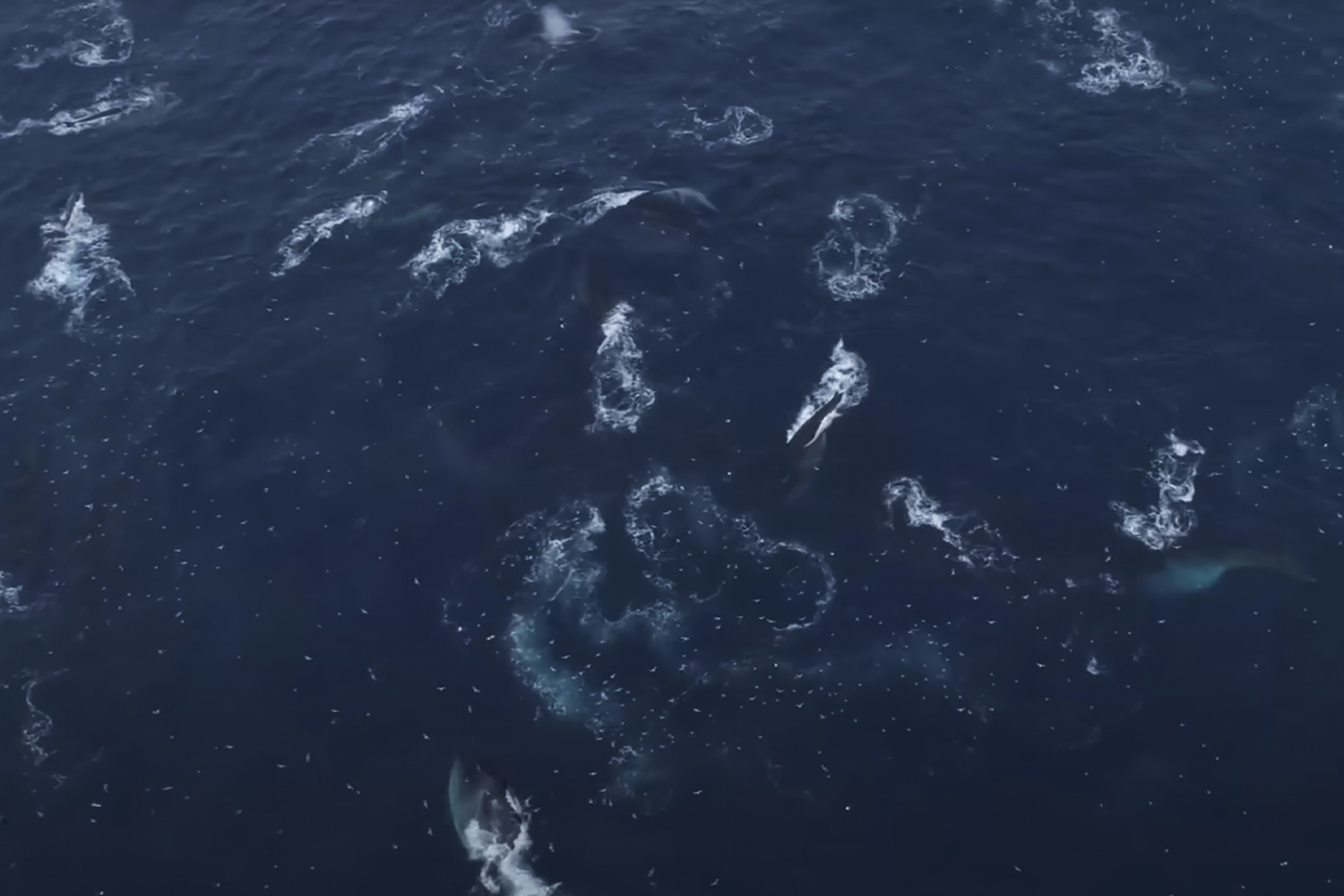Warming Weather Hinders Anchorage Fin Whale Skeleton Recovery

Table of Contents
Challenges Posed by Unseasonably Warm Weather
Warmer-than-average temperatures in Anchorage are posing serious obstacles to the fin whale skeleton recovery. The accelerated decay caused by the unusually warm Alaskan weather is creating a race against time. This impacts every stage of the process, from excavation to preservation.
- Increased bacterial activity: Warmer temperatures fuel bacterial growth, rapidly breaking down the whale's skeletal remains and valuable organic matter crucial for scientific analysis.
- Ground instability: The thawing ground is significantly softening, creating hazardous conditions for the excavation team and risking damage to the fragile skeleton. Heavy machinery is proving difficult to deploy safely.
- Accelerated decay: The combination of warmth and moisture is exponentially accelerating the decomposition process, threatening to render large portions of the skeleton unrecoverable.
- Transportation difficulties: The softened state of the remains makes transportation incredibly challenging, increasing the risk of further damage during relocation.
The Importance of Recovering the Fin Whale Skeleton
Recovering this fin whale skeleton holds immense scientific and educational value, contributing significantly to our understanding of Alaskan wildlife and the impacts of climate change. The data gleaned from this recovery will provide invaluable insights for years to come.
- Scientific research: A detailed analysis of the skeleton's bone structure and growth patterns will offer crucial information about fin whale biology, their life history, and population dynamics.
- Educational value: Once preserved, the skeleton can become a powerful educational tool, displayed in a museum to engage the public and raise awareness about marine mammal conservation.
- Whale health insights: Careful examination may reveal details about the whale's health before its death, potentially contributing to our understanding of threats faced by fin whales in Alaskan waters.
- Alaskan ecosystem understanding: The skeleton contributes vital data to ongoing research about the Alaskan marine ecosystem and the complex interplay of its inhabitants.
Impact on Alaskan Wildlife and Research
The difficulties encountered during this fin whale skeleton recovery highlight broader concerns about climate change's impact on Alaskan wildlife and research. This is not an isolated incident; extreme weather events are increasingly common, challenging existing research infrastructure and conservation efforts.
- Increasing frequency of extreme weather: The unpredictability of Alaskan weather patterns presents growing challenges to wildlife rescue and research projects.
- Need for increased funding: The additional costs associated with mitigating weather-related risks underscore the need for increased funding for wildlife rescue and research initiatives.
- Climate change mitigation: This incident strongly emphasizes the urgent necessity of global efforts to mitigate climate change and protect Alaska's vulnerable wildlife and ecosystems.
The Recovery Process and Current Strategies
The recovery team is employing specialized techniques and equipment to salvage as much of the fin whale skeleton as possible, adapting their strategies in light of the warm weather. The work is delicate and painstaking.
- Excavation techniques: The team is using precise excavation tools and methodologies to minimize damage to the fragile bones.
- Specialized equipment: Specialized cranes, stabilizing compounds, and protective materials are being used to ensure the safe extraction and preservation of the remains.
- Expert team: A multidisciplinary team, including paleontologists, biologists, and experienced excavators, is working collaboratively on this sensitive project.
- Recovery timeline: The original timeline has been significantly affected by the unexpected warm weather, necessitating adjustments to the recovery strategy and extending the timeframe.
Conclusion
The recovery of this Anchorage fin whale skeleton is facing unprecedented challenges due to unexpectedly warm weather. This situation highlights the urgent need for climate action and increased resources dedicated to wildlife rescue and research in Alaska. The successful recovery of this magnificent creature's remains is crucial for advancing scientific understanding, educating the public, and underscoring the significant impact of climate change on Alaskan wildlife. Support research efforts, advocate for climate action, and learn more about fin whale conservation – it’s vital to protecting these magnificent animals and their delicate ecosystem. Let's work together to ensure the future of Alaskan wildlife.

Featured Posts
-
 De Xuat Giai Phap Sau Vu Bao Mau Tat Tre O Tien Giang Bao Ve Tre Em Hieu Qua Hon
May 09, 2025
De Xuat Giai Phap Sau Vu Bao Mau Tat Tre O Tien Giang Bao Ve Tre Em Hieu Qua Hon
May 09, 2025 -
 Analyzing Doohans Path Jolyon Palmers Post Colapinto Appointment Assessment
May 09, 2025
Analyzing Doohans Path Jolyon Palmers Post Colapinto Appointment Assessment
May 09, 2025 -
 The Trump Tariffs A Strategic Weapon According To Senator Warner
May 09, 2025
The Trump Tariffs A Strategic Weapon According To Senator Warner
May 09, 2025 -
 The Crossroads Of Ai Apples Next Move
May 09, 2025
The Crossroads Of Ai Apples Next Move
May 09, 2025 -
 Colapintos Unexpected Challenge To Lawsons Red Bull Position
May 09, 2025
Colapintos Unexpected Challenge To Lawsons Red Bull Position
May 09, 2025
Latest Posts
-
 High Potential Season 2 Predicting The Fate Of Season 1s Most Underrated Character
May 09, 2025
High Potential Season 2 Predicting The Fate Of Season 1s Most Underrated Character
May 09, 2025 -
 High Potential Why The Season 1 Underdog Deserves A Season 2 Spotlight And Maybe A Villainous Arc
May 09, 2025
High Potential Why The Season 1 Underdog Deserves A Season 2 Spotlight And Maybe A Villainous Arc
May 09, 2025 -
 Find Out When The Next High Potential Episode Airs On Abc
May 09, 2025
Find Out When The Next High Potential Episode Airs On Abc
May 09, 2025 -
 The Lasting Impact Of High Potential An 11 Year Retrospective On Psych Spiritual Success
May 09, 2025
The Lasting Impact Of High Potential An 11 Year Retrospective On Psych Spiritual Success
May 09, 2025 -
 Is This Show The Best Replacement For Roman Potential Spoilers Ahead Of Season 2
May 09, 2025
Is This Show The Best Replacement For Roman Potential Spoilers Ahead Of Season 2
May 09, 2025
